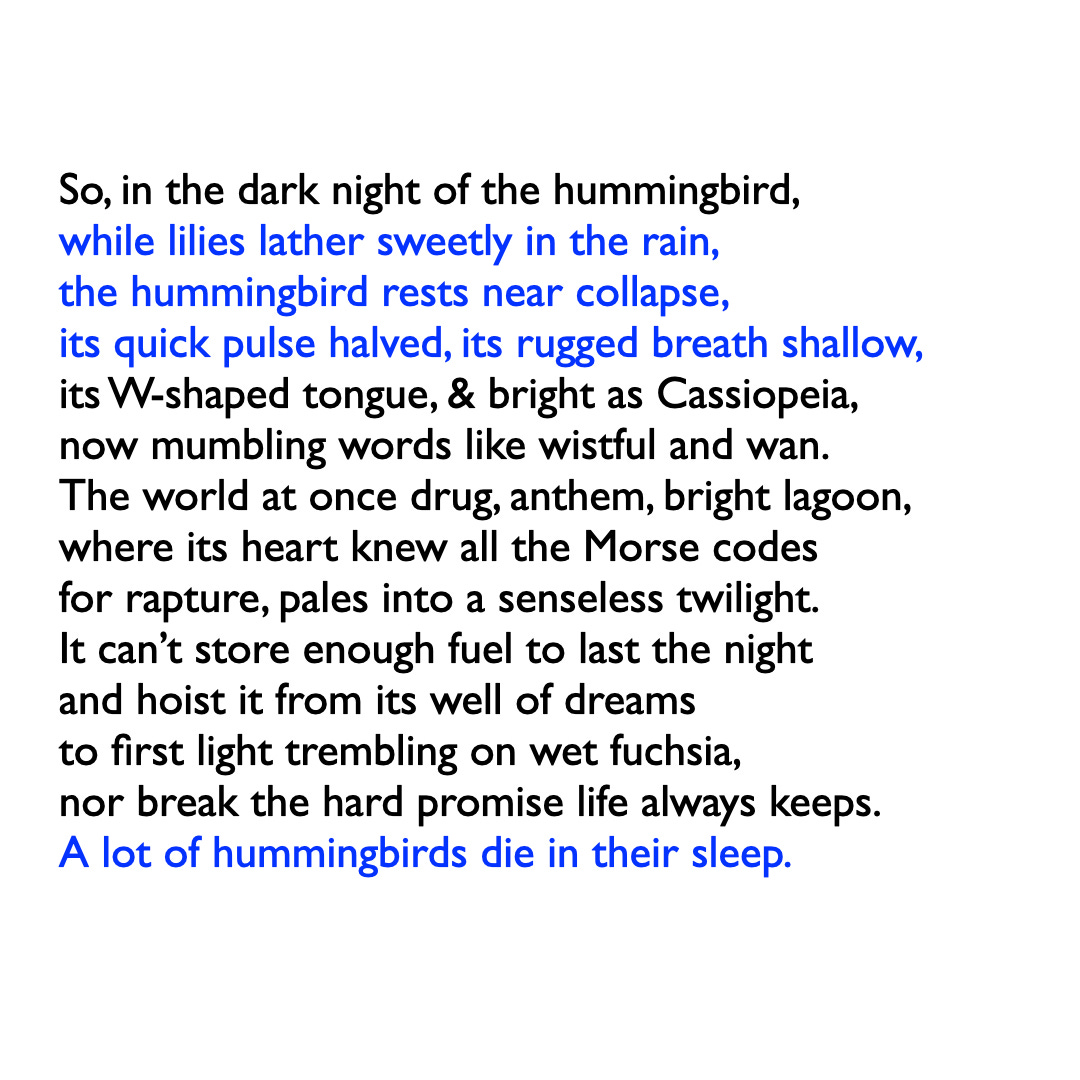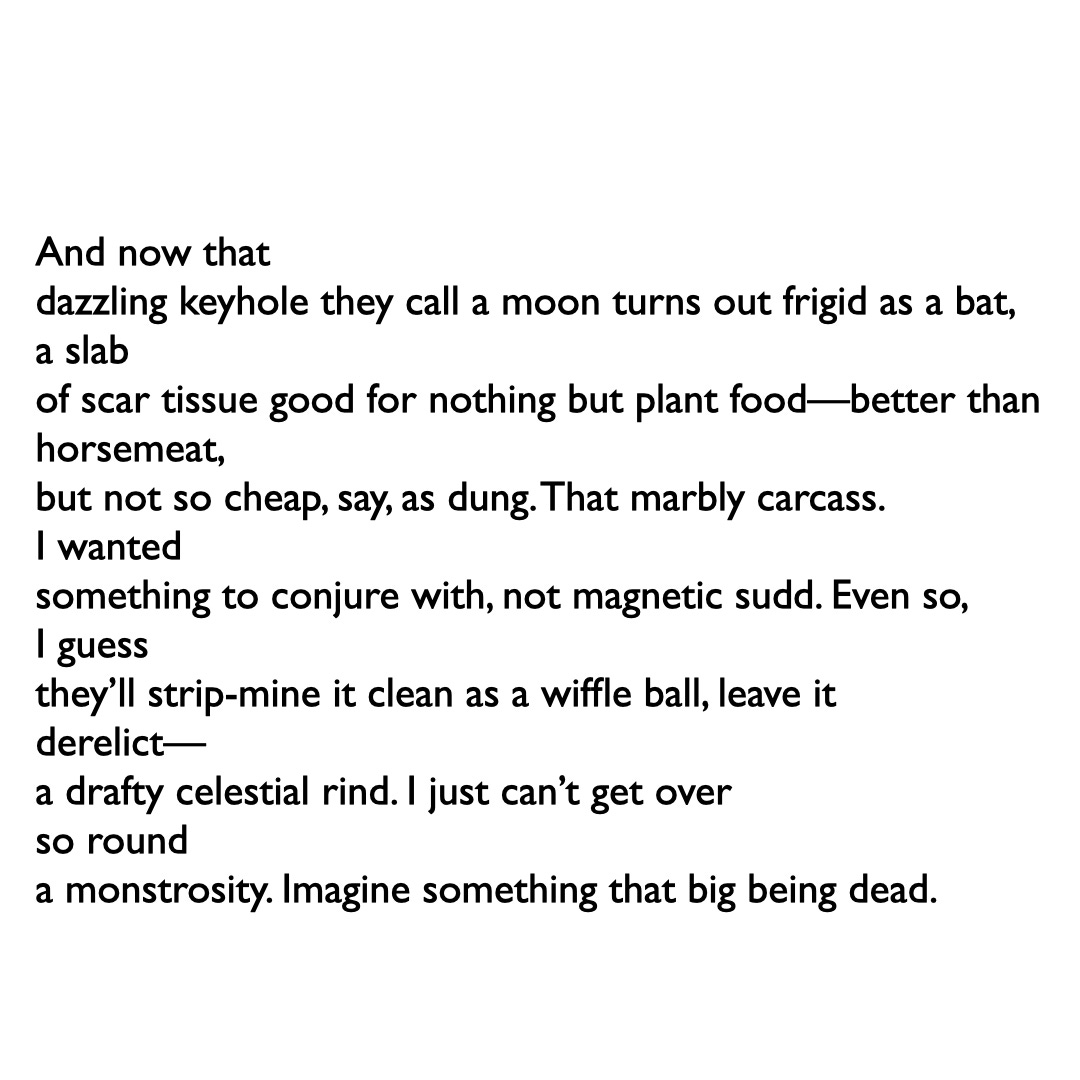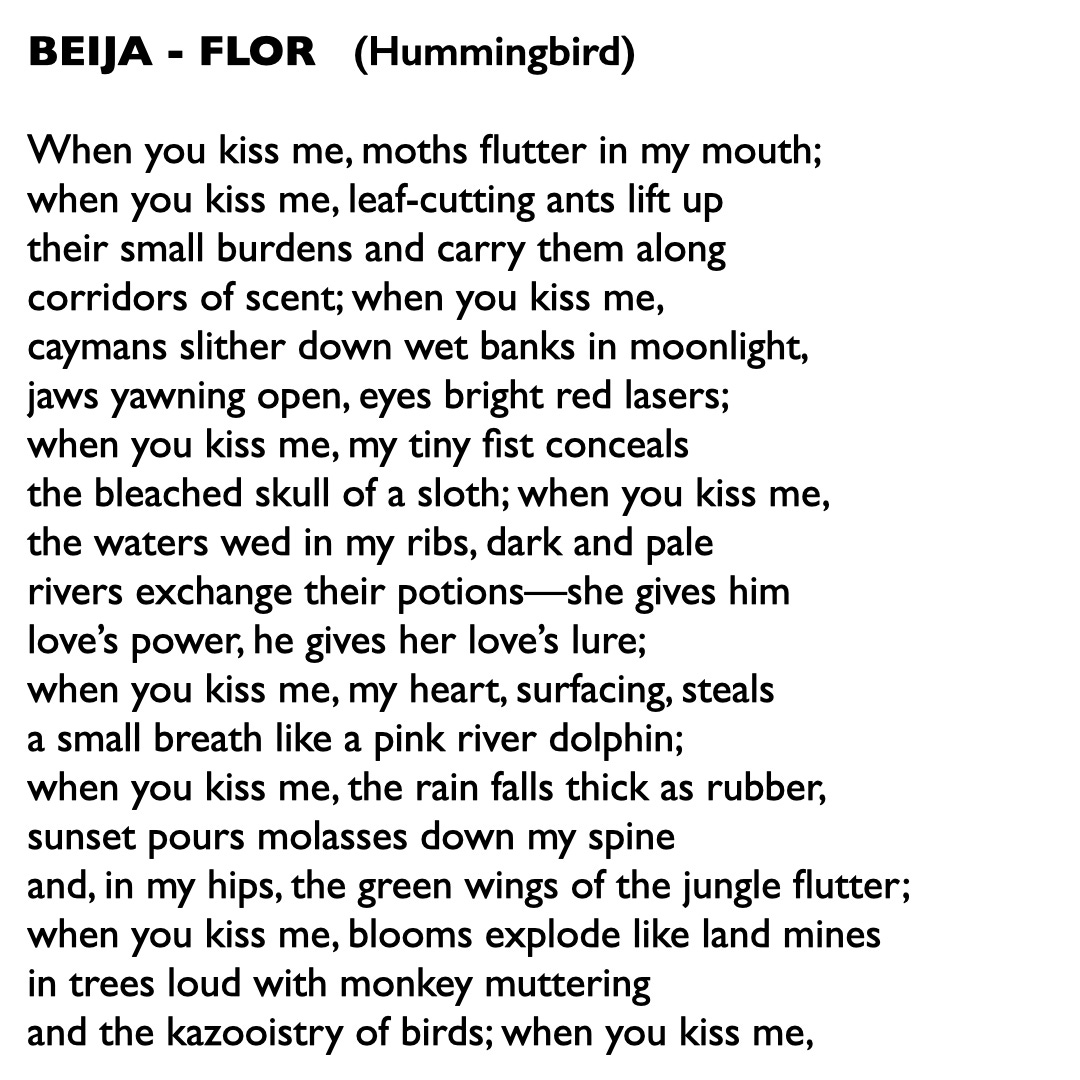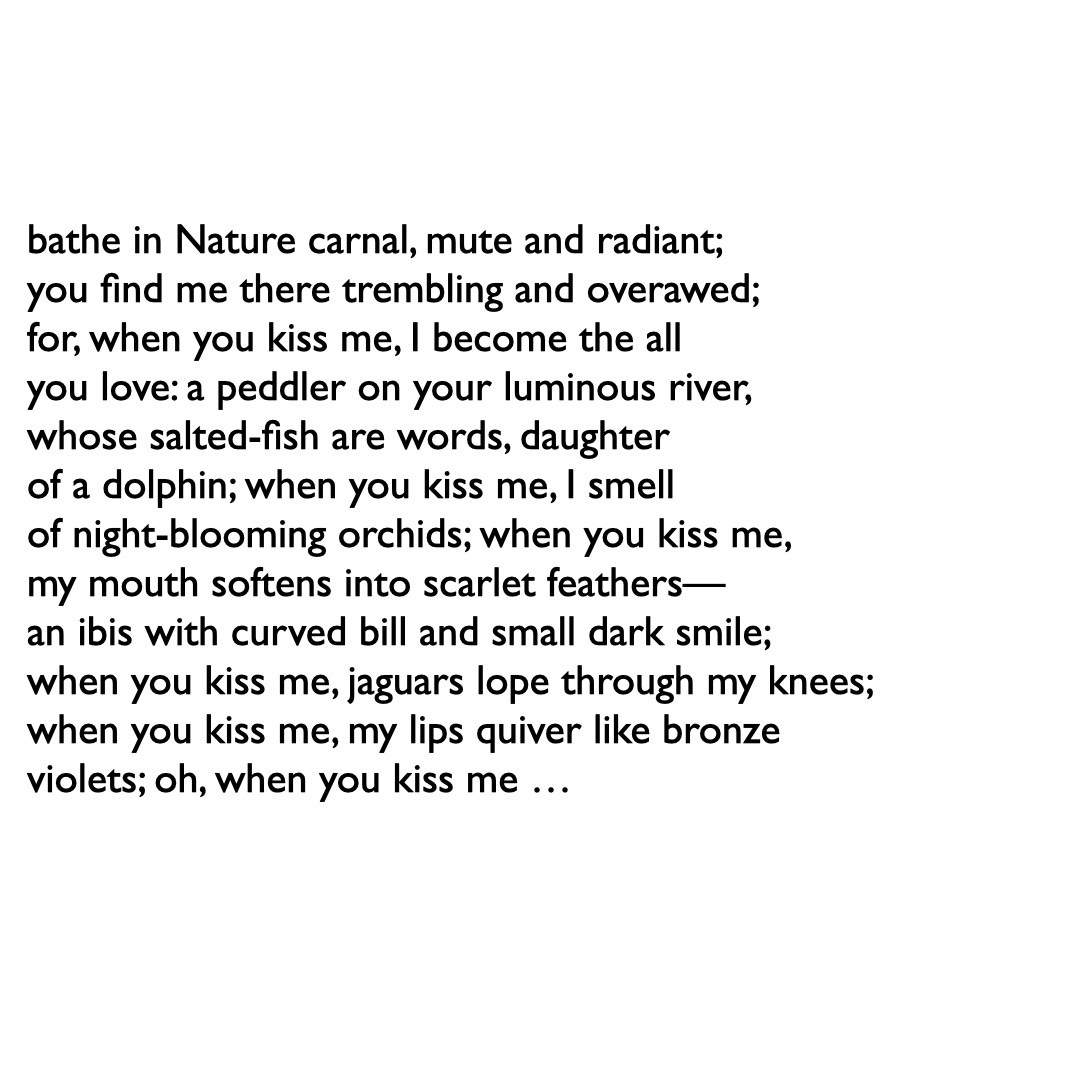3 poems by Diane Ackerman
...Invention of flying...
I don’t think I have a single favourite poet who hasn’t written a poem about birds: birds as winged accordions of first love, birds in cages, birds set free, hope is the thing with feathers after all, and what about that bright blue bird that turns into poem. Kondepudi Nirmala uses the metaphor of the bird that loves the net to describe the experience of being stuck in a patriarchal home, in the business of domestic life. Birds form murmurrations whose sordid shapes are metaphor for pattern and chaos, predatory packs. It’s almost a joke, sometimes, the ease with which we resort to that which is out of reach, a wanting that is half-desire, half-delusion. Kenneth Patchen invokes the fragility of fledglings in a short poem.
Now Is Then’s Only Tomorrow
As ever the Trust of little birds
That the sky will be
Smart enough to appreciate
Their invention
Of flying
And indeed it is an invention. In the human gaze, every natural thing is an invention. What is seen is captured momentarily, and then recast in the soft clay of language, but meaning accumulates slowly over time, stilted and incoherent. In an earlier post about the shutting down of Westland, and Qabar, I had shared a line that one of the characters from Meera’s novella had quoted:
‘Just remember what Tagore said: if you are inside the cage, there is no room to spread your wings, but you will have a perch to sit on. If you are in the sky, there is plenty of room to spread your wings, but no perch to sit on. Which is the one you want? You have to decide for yourself.’
This line has stayed with me. The axes of stability, belonging, independence and the invisible prisons of society glow through Tagore’s words. Perhaps this is the essential dilemma, that the bird discerns the arc of the horizon, and still chooses a perch.
Diane Ackerman is a naturalist and a poet. The pulse of language echoes in her poetry. She rhymes, and plays with assonance and onomatopoeia, and one is reminded of the word-play of Hopkins, the warm sonorous wanderings that allowed him to spy god in the natural world. Even Ackerman’s subjects come from nature, her poems flock together in singular quest that brim with little truths fashioned into insight. In them the world opens up like a many petalled book, re-wrought into verse with the impassioned touch of the wordsmith. It is this love of the sound of words, that brings together uncanny worlds, and sows new light in familiar objects. Her metaphors float with the recklessness of dandelions, and when they land, they disperse with the lightest of explosions.
In her collection of poems about celestial objects and organisms in space, that she called A Cosmic Pastoral, there is a poem I like for its decided refusal to slip into convenient metaphors about the moon. As she lazily alludes to some of the tales and tropes around it, she strips the moon of all romance, giving it shapes of decay and mythic disgust.
Imagine something that big being dead!
There are those who critique her use of the esoteric objects beyond our immediate ken, in her poetry. While talking about A Comic Pastoral, she refutes this allegation: “Not to write about Nature in its widest sense because quasars or corpuscles are not ‘the proper realm of poetry,’ as a critic once said to me, is not only irresponsible and philistine, it bankrupts the experience of living, it ignores much of life’s fascination and variety.” Famously Carl Sagan is said to have sat in her doctoral committee and served as technical advisor to the book. It is quite an astonishing work, and stretches the imagination, with hard research and periodic observations at skylabs.
I want to end with a poem that embodies her seamless weaving of the rhythms of nature in the body. Read this for the splendour of its imagery, the breathless scope of its colourful sensorium. Feel life surging in the tingling fingers of her phrases, and the gathering pace, even of her wistful coda. There is an awareness of little organisms, ‘lead-cutting ants lift up their small burdens’, expansive vistas, ‘the river-mirror reflects an unknown land,/eyes glitter in the foliage’, and the effortless leavening of environment with the sudden return to touch, ‘the river wraps its wet thighs around a bend’. Even as the images ascend with ever widening crescendo there are moments of pause, where the distinctness of her descriptions leave us marvelling at the beauty of the world - a world that for Ackerman, continues to revolve with faith at its centre, and a lust that is as ancient as intuition.
The kiss, like the hummingbird of the title, has wings that beat at the speed of nervefire. Its catastrophic pirouette is a saga of many small deaths, and in that drowning, the lovers rise again… and again.
Shout out to the reader - the anonymous contributor from the UK who wrote such kind words, and made a direct generous contribution!
If the poetry, and the commentary, resonate with you, do consider ‘buying me a coffee’. (Matlab, if you can’t, that’s also fine, obviously. This is a free newsletter)
Note: Those, not in India, who’d like to support the work I do at Poetly, do write to me - poetly@pm.me. (Paypal seems to have left the building, still figuring it out)
You can write to me, waise bhi, if you feel like it :)
Thanks for reading Poetly! Do subscribe if you are not reading this in your inbox. Cheers!







